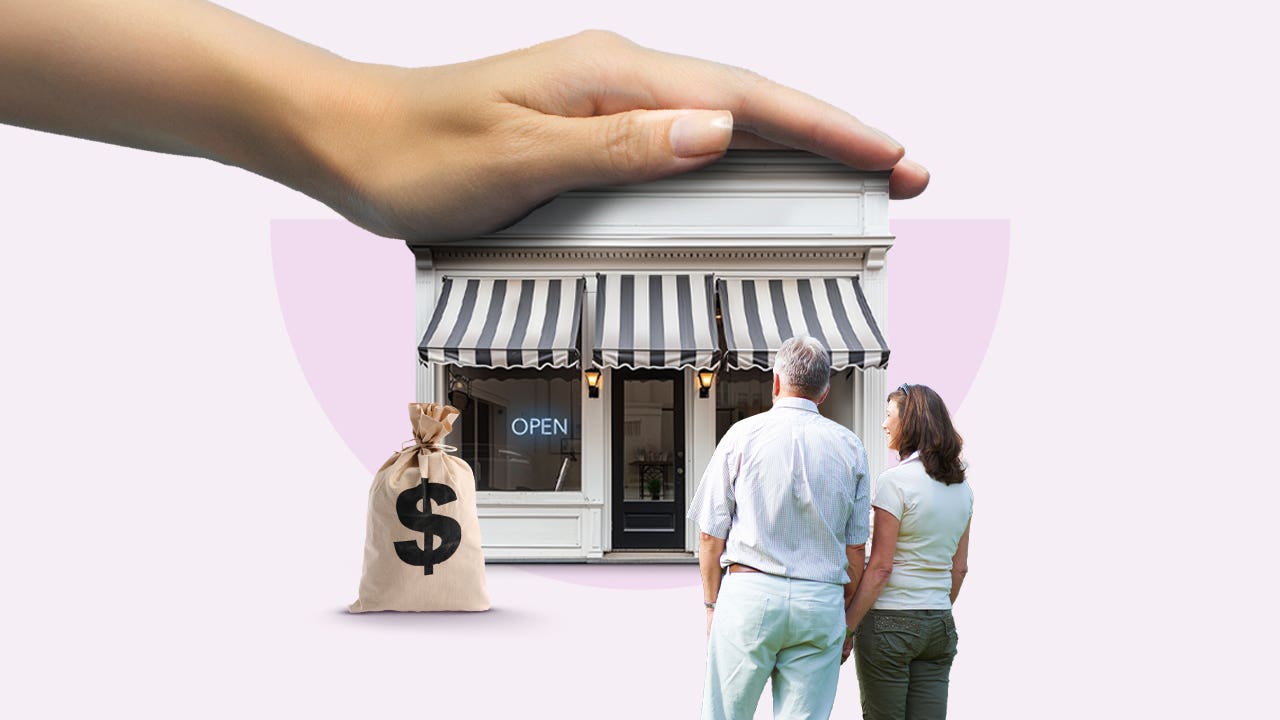Do you need hazard insurance for an SBA loan?

Key takeaways
- Hazard insurance may be required by the SBA or lender
- It usually refers to a policy for commercial buildings or equipment
- It covers accidents or some natural disasters
When applying for an SBA loan — or any business loan — you may need hazard insurance for the collateral you use to back the loan. Hazard insurance usually applies to commercial real estate or equipment. This policy not only protects you if your commercial property gets damaged by an accident, inclement weather or other covered peril, but it also protects the lender whose loan investment in your business is backed by the same property.
Here’s what you need to know about hazard insurance for SBA loans and where to find a policy.
What is hazard insurance for an SBA loan?
Hazard insurance is business loan insurance that protects your business’s physical property in case of damage, also known as commercial property insurance. The Small Business Administration (SBA) or lender may require this insurance when you’re purchasing real estate or backing an SBA loan with collateral.
Hazard insurance typically protects commercial rental or owned buildings or equipment. But you can get commercial property insurance to cover many types of business property. Hazard insurance often kicks in to cover these types of damage:
- Fire or explosions
- Fire sprinkler damage
- Theft
- Vandalism
- Vehicle crashes
- Damage to building structure
- Some natural disasters like lightning or snowstorms
- Lost income during closures, in some cases
When do you need hazard insurance for an SBA loan?
Hazard insurance is required for most Economic Injury Disaster Loans (EIDL) or physical disaster loans. When getting an SBA disaster loan, the SBA may reduce the loan by any amounts paid by insurance for damaged property.
The SBA also requires this business loan insurance on any collateral used for SBA 7(a) or 504 loans over $500,000, according to the Code of Federal Regulations. If a commercial building is in a flood plain, the SBA also requires your business to get flood insurance.
While the SBA may not require insurance on smaller loans, the lender may require it and ask to be added as a loss payee on the policy. If the lender is added as a loss payee, they have the right to any insurance payouts if the business property is damaged.
While businesses in any state can apply for an SBA loan, you have a higher chance of approval if you live in certain states. To date, California, Texas and Florida have the highest loan amounts approved for 7(a) loans. But approved SBA 7(a) loan amounts dip the lowest in Vermont, Hawaii and North Dakota. See where your state lands on the map of SBA loan approvals to get an idea of your chance for approval.
Where to find hazard insurance
To get hazard insurance for an SBA loan, look for commercial property insurance with any business insurance company, such as Progressive or The Hartford. You can also work with a local insurance broker who regularly shops around for policies to find the best deal for you.
Hazard insurance may also be in your regular Business Owner’s Policy (BOP), which includes commercial property insurance and general liability insurance. General liability insurance helps with general claims if your business caused — or is liable for — any injuries or physical damage.
Alternatives to SBA loans
If you want to avoid needing hazard insurance, you could get an SBA loan with a lower loan limit. Most SBA loans don’t require collateral if you borrow less than $50,000.
But you’re not tied to just SBA loans. You could find a business loan that doesn’t require property insurance, such as an unsecured loan. Otherwise, you can look for alternatives to traditional business loans, such as:
Business line of credit
An unsecured business line of credit can suit your business if you need to cover small expenses. Many lines of credit offer borrowing limits from $1,000 to $250,000, which can pay for a range of small purchases, including equipment. The main benefit of having a business line of credit is that you can reuse the credit once you repay the loan amounts.
Business lines of credit can also have lower eligibility requirements than term loans. For example, many lenders only require a time in business of one to two years and a minimum personal credit score of 600 to 650.
Business credit cards
While not a loan, many business owners start with a business credit card to pay for small business expenses or emergencies, as it’s a revolving line of credit. Business credit cards don’t require hazard insurance to qualify. Some of the best business credit cards also offer rewards like points or cash back.
While many business credit cards require a minimum credit score of 670 or higher, you can find cards designed for fair to poor credit.
The Spark 1% Classic is an example of a card offered to fair credit borrowers with unlimited cash-back rewards and no annual fee. You can also go with an unsecured business credit card if you don’t meet the usual standards.
Business grants
A business grant won’t require insurance since grants aren’t expected to be repaid. The grant organizer is essentially giving away free money to businesses that meet the grant’s specific qualifications. Business grants work well for startups since you don’t have to meet a minimum credit threshold.
But grants are a less sure way of getting business funding since you have to compete with other businesses. You can improve your chances if you find grants geared toward a specific industry or minority community.
Business grants are usually either aimed at small businesses in general or serve specific communities. You can check out grants for:
Bottom line
Hazard insurance is essentially commercial property insurance that protects your business if your real estate, equipment or other business assets are damaged. In some cases, it can also pay for business interruption, which covers lost revenue while your business is closed.
This type of insurance is also crucial for qualifying for some business loans, including SBA loans. But even if the SBA or lender doesn’t require it, you may want to consider hazard insurance for SBA loans so you’re not left paying for property losses out of pocket.
Frequently asked questions
-
Yes, you’re required to get hazard insurance for some SBA loans, such as an Economic Injury Disaster Loan. The SBA also requires it for 7(a) or 504 loans above $500,000.
-
Yes, hazard insurance typically refers to business property insurance for commercial rentals, owned buildings or business equipment. But you can get business property coverage for a variety of business assets.
-
The SBA requires hazard insurance to cover all collateral used for SBA 7(a) or 504 loans, but only with loan amounts above $500,000. Keep in mind that other lenders may require hazard insurance for lesser loan amounts, even if the SBA doesn’t require it.
Why we ask for feedback Your feedback helps us improve our content and services. It takes less than a minute to complete.
Your responses are anonymous and will only be used for improving our website.
You may also like

How long does it take to get an unsecured business loan?

How to get a first-time business loan

SBA Express loan: What it is and how to apply

Business loan agreement: What to know before signing


